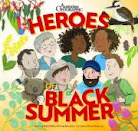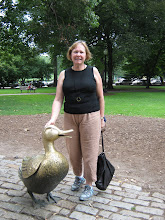As children and teachers go back to school this week in New South Wales, tucked away on page 18 of the Sydney Morning Herald on Saturday, there was a 'news' article that was headed
'Children are forgetting the joy of reading'. It was written by journalist, Catherine Naylor and on further reading of the article it implied that this was because of children spending time on screens. It is far more than this!
Firstly, children are not forgetting the joy of reading. Many of them haven't yet got that joy to forget. While I have been teaching the English syllabus has had many iterations and it is in the process of being changed yet again. The K to 2 section is now mandatory. The changes overly stress phonics as the first essential of reading. While phonics certainly is important, the first elements of reading that should be stressed are JOY and PURPOSE. Why do we read? Why do I need to read? Successful students read and they read for pleasure.
I teach in a K to 12 school and I get great pleasure reading the Year 12 results when I see that a student who has done well is a student that I taught and she or he was experiencing joy in reading in Prep School. I know then that I had a role in that student's education. I love it when they or their mum or dad tells me about them as a reader and the impact it has had on them. This happened to me recently at a school student get together in a pub.
While I am prepared to admit that many teachers need help with how to teach reading, they also need more than the mechanics. They need knowledge of children's literature, they need to be readers themselves and they need to know how to make reading fun. Yes, the fun has gone out of reading. When I see a smart board screen with one letter (sound) in the middle of it and students articulating that sound over and over, I do wonder if they know why they are doing that.
While walking this week with a teacher colleague, she was bemoaning the fact that a lot of the theatre had gone from teaching. She said 'to me teaching is a performance' and when I watch and listen to some of my fellow teachers I think that there is a mundaneness about their teaching. And yes, that may be because they have too much on their plate, but I also think that it is because they no longer 'own' what they teach. It is fine to be given units of work to follow, but to teach something verbatim means that it s not yours.
NESA has provided teachers with sample units of work in the new English syllabus which are supposed to ensure that they cover all elements and outcomes of the syllabus. But many schools are adhering to them as if they are the panacea to English education. They are written by teachers so they have flaws and play favourites just like all teachers do. Who says that the books suggested in these units are the only books or the best books that you should or could use to teach that outcome at that stage level? These units fragment the curriculum and make the day even busier than it already is and many students are failing to transfer these skills across curriculum areas. Be brave choose your own texts and relate them to your unit of inquiry or some other area of the curriculum. Show your students why and how this can be done.
Secondly, if it was as simple as saying that the joy has gone because of screens, then all of the teacher librarians who have done their best to promote e-reading and have provided a myriad of book titles that students have access to via screen would be saying that students can get the joy of reading from a screen. Many of my adult reading friends do read on screen, but that is not where they got their initial joy of reading from. They got it from their parents, another family member, a teacher, a teacher librarian, a peer, in other words another enthusiastic reader who loves reading and books!
The school library I work in, has always loaned books to parents. This is because we see teaching reading as being a partnership between home and school in the early years of schooling. We encourage parents to supplement their child's choices with things that they may not choose to borrow themselves. We work hard at ensuring the books on display change regularly. We organise displays by genre, theme, author, illustrator, world events, school events, International Days and sometimes even by something as simple as a colour, word or letter. When we have a display based on a word or a letter, the students have great pleasure in telling me why those books are a group... all these book tiles have e.g. the word 'why' or the word 'no', all these titles are about things that start with 'p'. The students know that I am asking them to engage with reading.
We also endeavour to get teachers into the library. Of course we have our diehard borrowers, but it is hard to get some teachers to even walk through the door of the library. We have tried giving them book bags each week. We have left books on their chair. We have advertised books at staff meetings. We have gone above and beyond with bulk loans for their classrooms, but if the enthusiasm isn't there and time isn't made for reading 'real' books as opposed to 'readers' the joy of reading will not be 'caught'.
Unfortunately, some teachers and curriculum co-ordinators have interpreted the new curriculum to mean that it is not necessary to read whole texts, an extract will suffice, and that sustained silent reading (SSR or DEAR) is not necessary, or actually is a waste of time until a student can read. These teachers are missing two things in their teaching repertoire... JOY and STAMINA. If they read to their students, then their students want to read (look) at those books themselves. They want to peruse the finer details in the illustrations. They want to peruse the layout, the font, the things that make that book special.
Stamina is also learned. Students need to be able to sit, focus and be with a book for extended periods of time. Many students I teach love being read to, and they can sustain being read to for long periods of time but when they are reading to themselves they run out of stamina to do it for a lengthy time. They start to fidget, skip forward in the book, ask to go to the toilet, want to swap books etc. Yes, this may be because they cannot read what they chose, but it could also be that they have not had opportunities to do this. If the teacher starts small, uses a timer and makes it a game, each day the period of time can become a little bit longer until students can entertain themselves with a book rather than a screen. Use wordless books (see Pinterest) where the student has to make up the story themselves. Use books you have already read to them or old favourites they know and can 'read' themselves.
Catherine Naylor says that "the portion of children aged 5 to 14 who read in their spare time has fallen by more than six percentage points in just four years, from 78.5 per cent to 72.4per cent." I think that is most probably because of COVID when students did get very used to using screens and had less access to books from school, but watching students in my library over the last ten years or so, students certainly look for shorter books and books that are funny. Why? Well it goes back to stamina, but it is also what they are exposed to. Pulp fiction in the supermarkets is short and funny and cheap. Teachers and parents have to expose them to more and that is why the provision of extended JOY goes back to parents and teachers. Some students are reading, but I think they could be enjoying reading a wider range of books.
The students at my school are very lucky. The libraries are very well stocked and their is a great range to choose from, but not every school or classroom has this and if the curriculum says 'literature' is important, it should be more specific about the role of the school library, the classroom library and the teacher modelling reading. Every teacher needs to read Megan Dowd Lambert's book, Reading Picture Books With Children so that they know what they are modelling. The curriculum shouldn't be interpreted to mean every teacher librarian has to buy multiple copies of the books that are used in the sample units and deplete their meagre budget for other books that might excite students. Let teacher librarians do what they should be doing, enthusing students, teachers and parents to read for pleasure.
On that note, I have watched what's happening in the UK very closely. They went down the track of a much more didactic curriculum and closing of school libraries and now years later there is a big push for 'reading for pleasure' in schools and the online groups of teachers asking for help with that are immense.
I have just noticed that my friend at Momo Celebrating Time to Read has also written about this newspaper article, so read what she has to say as well. She certainly has a PASSION for reading and children's books and I do know that not every teacher will be like her and me, but there does need to be a lot more passion associated with the teaching of literacy. We want children not only to be able to read, but who also choose to read long after your interaction with them.
It is a sad indictment when you read the blurb for this wonderful book:
Now consider: When talking with children about their reading lives at school, are you likely to hear about this transformative reading joy? Or are you more likely to hear about reading logs, book reports, and standardised tests? For too many young readers, reading is joyless. It is something that is required of them, but not something that they choose to do.






















































